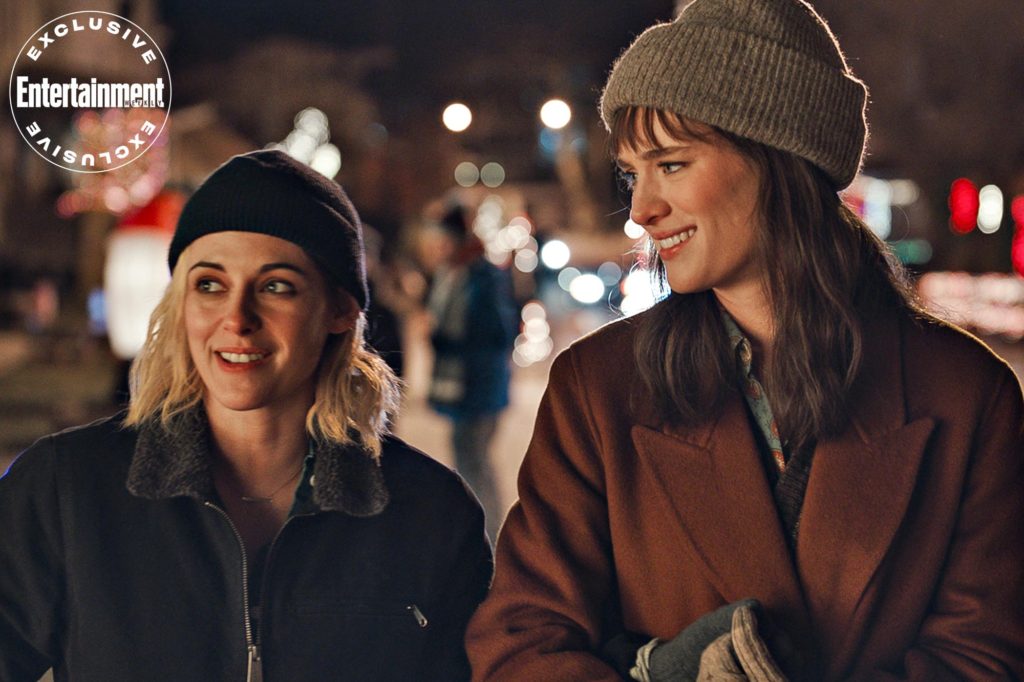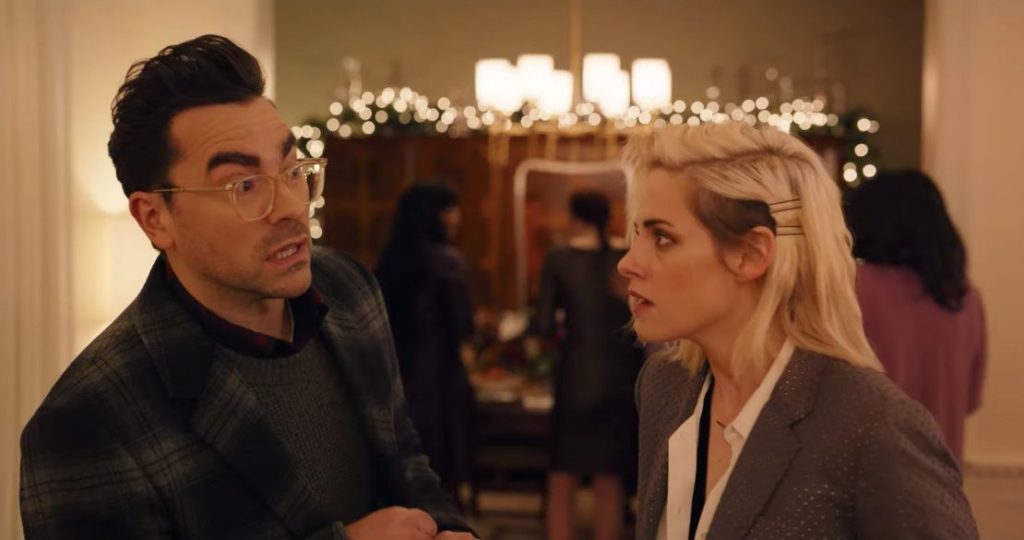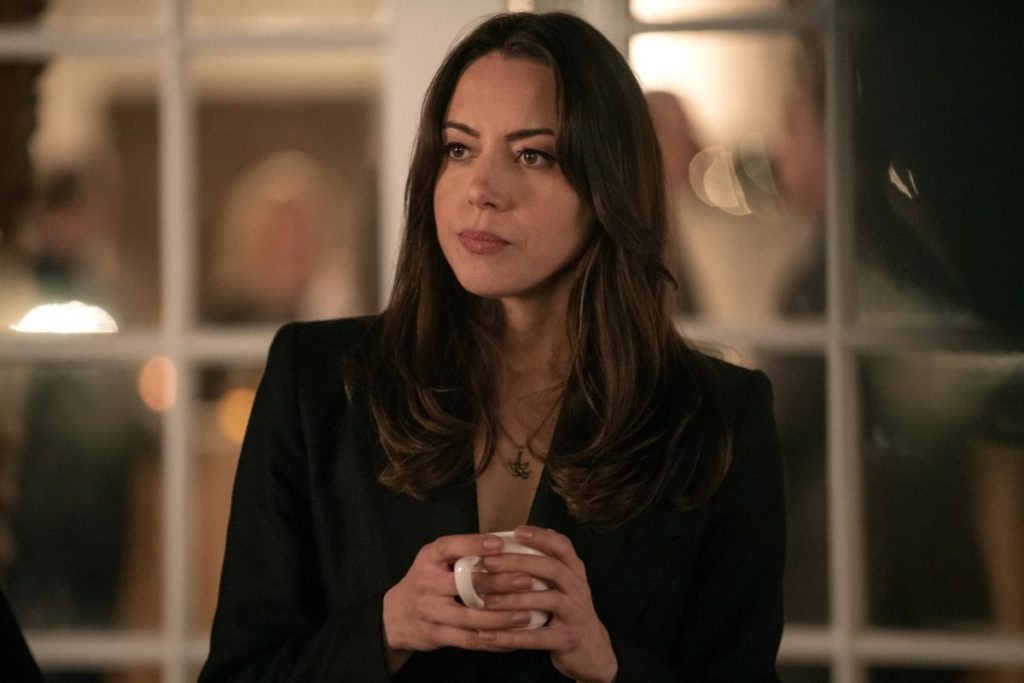2020 was a year of challenges but also a year of representation. LGBTQ+ roles became more prevalent in major studio efforts. Several actors and actresses came out as transgender, gay, or binary. Video games introduced characters who celebrated gay relationships or filled transgender roles. The wave of open relationships even found its way into the holidays with several movies centered around gay relationships. The film that most widely kicked down the door and announced its presence was the Netflix movie, “Happiest Season.”
The film’s premise is introduced early and easily defined. Harper (The Martian’s Mackenzie Davis) meets and falls in love with her girlfriend, Abby (Kristen Stewart (Snow White and the Huntsman.)) With the holidays fast approaching, Harper asks Abby to join her as she visits her parents for Christmas. Abby agrees. Harper then springs it on her that her family is not only very traditional and conservative, but that she has yet to come out to them as gay.

This sets the stage for the absurdity that is the center of writer/director Clea DuVall’s film. Harper’s parents are brilliantly portrayed by veteran actors Victor Garber (Alias) and Mary Steenburgen (Step Brothers) as absolute stereotypical parents who want to see reality through their protected traditional view. Harper is flanked by older sister Sloane (Alison Brie(GLOW)) who appears to have the perfect marriage the parents envision for their daughters. The youngest daughter is Jane (Mary Holland (Comedy Bang! Bang!) whose every effort for acceptance seems to go unnoticed.

Happiest Season never steers too hard into one relationship or another but leverages many of them to creative a narrative that is as entertaining as it is educating. DuVall dedicates as much time to Jane trying to find her unique voice as she does to the angst that any of the gay characters might find to not being accepted.
The cast is incredibly well-balanced. Garber and Steenburgen play the ultra-conservative parents. Davis portrays Harper as completely afraid to face any rejection if she comes out. As a result of her behavior, Abby retreats to a pessimistic disappointment with the holidays. Her stoic demeanor and Harper’s limited ability to show emotion open the doors for the movie’s two best characters.
Abby routinely phones her best friend, John, for advice. John (Dan Levy (Schitt’s Creek)) is the embodiment of every gay male stereotype. He’s disorganized, probably 15 minutes late for every appointment and always appears to have thrown on whatever is clean. He’s the Jiminy Cricket that Abby needs for several moments of crisis. At the pinnacle of her disconnect with Harper, Abby finds an unlikely voice of reason in Riley (Legion’s Aubrey Plaza), Harper’s ex-girlfriend.
It’s these support system characters who provide the dialogue and experiences that save Harper and Abby’s relationship. Without them, Abby never gives Harper the opportunity to apologize and they don’t stay together. It doesn’t hurt that John and Riley seem to be written specifically for Levy and Plaza.

“Happiest Season” is something new, but it offers a new perspective on the holidays for some and a voice to others who may not know how to speak for themselves. Regardless of your stance on gay relationships, this one is full of laughs.
